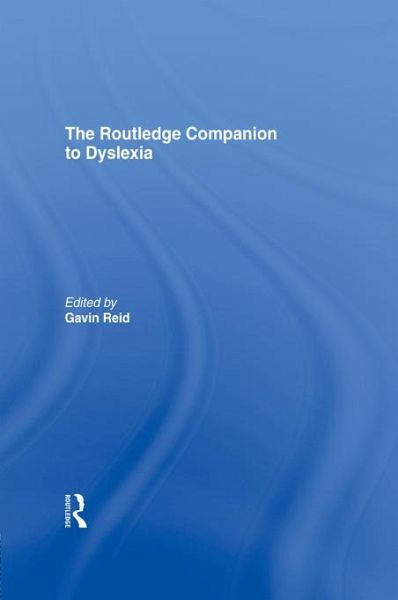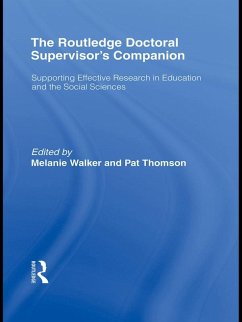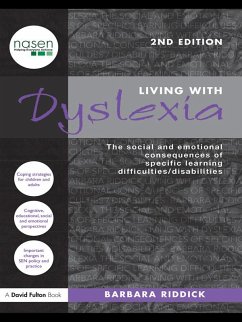
The Routledge Companion to Dyslexia (eBook, ePUB)
Versandkostenfrei!
Sofort per Download lieferbar
48,95 €
inkl. MwSt.
Weitere Ausgaben:

PAYBACK Punkte
24 °P sammeln!
The Routledge Companion to Dyslexia is a ground-breaking analysis of the whole field of dyslexia by a distinguished team of international contributors and editors, engaged in literacy, inclusion and learning. Their diverse perspectives and wide expertise make this invaluable guide one of the most important additions to the field of dyslexia for over a decade.Dyslexia is without doubt the most high profile and contentious learning difficulty, and it is a topic that has attracted a vast amount of research, opinion, professional schisms, and debate. The Companion provides an invaluable overview o...
The Routledge Companion to Dyslexia is a ground-breaking analysis of the whole field of dyslexia by a distinguished team of international contributors and editors, engaged in literacy, inclusion and learning. Their diverse perspectives and wide expertise make this invaluable guide one of the most important additions to the field of dyslexia for over a decade.
Dyslexia is without doubt the most high profile and contentious learning difficulty, and it is a topic that has attracted a vast amount of research, opinion, professional schisms, and debate. The Companion provides an invaluable overview of the field of dyslexia with vital and clear emphasis on linking theoretical perspectives with best practice. This accessible text:
The Routledge Companion to Dyslexia is a superb resource for anyone interested in the subject, whether in education or related subjects such as psychology or neurology. Fully indexed and cross-referenced, with helpful further reading sections at the end of each entry, it is ideal for those coming to the field of dyslexia for the first time as well as students and practitioners already familiar with the subject.
Dyslexia is without doubt the most high profile and contentious learning difficulty, and it is a topic that has attracted a vast amount of research, opinion, professional schisms, and debate. The Companion provides an invaluable overview of the field of dyslexia with vital and clear emphasis on linking theoretical perspectives with best practice. This accessible text:
- presents a survey of current and future development in research, with a focus on how research can inform practice
- focuses on areas such as neurobiology, phonological processing, literacy acquisition, numeracy and multilingualism
- considers assessment and identification, with contributions on early identification, reading, spelling and mathematics
- addresses identifying and meeting needs in an inclusive context
- discusses inclusion and barriers to learning in a variety of different national contexts
- includes models of instruction, direct instruction, co-operative learning and cross-curricular learning.
The Routledge Companion to Dyslexia is a superb resource for anyone interested in the subject, whether in education or related subjects such as psychology or neurology. Fully indexed and cross-referenced, with helpful further reading sections at the end of each entry, it is ideal for those coming to the field of dyslexia for the first time as well as students and practitioners already familiar with the subject.
Dieser Download kann aus rechtlichen Gründen nur mit Rechnungsadresse in A, B, BG, CY, CZ, D, DK, EW, E, FIN, F, GR, HR, H, IRL, I, LT, L, LR, M, NL, PL, P, R, S, SLO, SK ausgeliefert werden.













